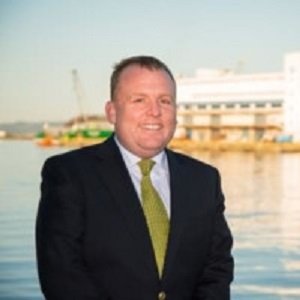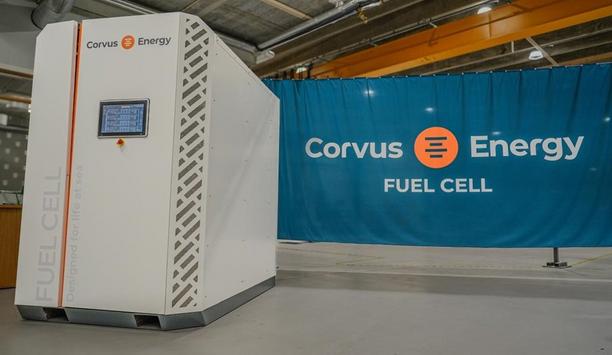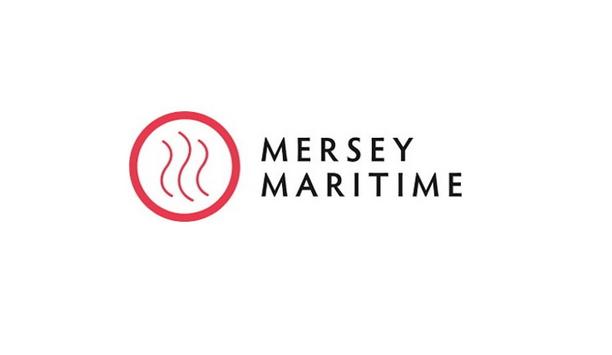Corvus Energy Ltd - Experts & Thought Leaders
Latest Corvus Energy Ltd news & announcements
Corvus Energy, the supplier of zero-emission solutions for the offshore and marine industry, is proud to announce that it will deliver a mega-size battery system for the first fully electric offshore vessel ever to be built. The vessel is an electric Commissioning Service Operation Vessel (eCSOV) that will be constructed by Armon shipyard in Spain for UK-based shipowner Bibby Marine Ltd. World's first of its kind Corvus Energy will supply its Blue Whale Battery Energy Storage System (BESS) delivering close to 25MWh of power for the vessel. It will be the largest LFP (Lithium Iron Phosphate) battery system ever delivered to a maritime project. “A fully electric offshore vessel is something the industry has been working towards for a long time and marks a major milestone in offshore vessel operations," said Pål Ove Husoy, VP of Sales at Corvus Energy. Setting a new standard “This eCSOV will be the first offshore vessel that can operate fully electric for a full day and will set a new standard for future offshore vessels." "The unique system design incorporating both battery power and dual-fuel methanol engines will significantly reduce carbon emissions and increase energy efficiency while providing the reliability and performance needed for demanding offshore wind and renewable operations.” Unique optimised power distribution system Unlike conventional hybrid systems, the vessel will utilise its large battery pack as the primary power source Corvus Energy has been cooperating closely with the shipowner, designer, and integrator to dimension and optimise the system design. Unlike conventional hybrid systems, the vessel will utilise its large battery pack as the primary power source, with engines running solely for charging at a constant, optimised load that maximises efficiency, extends battery lifespan, and significantly reduces emissions. DC grid architecture The innovative DC grid architecture further enhances overall system performance by minimising energy losses and ensuring seamless power distribution. Additionally, offshore charging capabilities will enable simultaneous battery charging while maintaining DP for station-keeping, representing an industry first in the SOV market. Accelerating the path to net zero Gavin Forward, New Build Director at Bibby Marine, commented, “We are excited to collaborate with Corvus on this pioneering eCSOV project, setting a new benchmark for sustainable offshore operations and driving the future of zero-emission vessel technology." He added that Bibby Marine selected Corvus Energy "for its proven track record in delivering complex vessel projects, while the LFP battery chemistry was chosen for its alignment with our eCSOV’s operational profile, offering enhanced safety, longevity and reliability for a project that promises to accelerate the path to net-zero for the maritime sector." Equipment from Corvus Energy will be delivered to the shipyard in 2026, and the vessel is scheduled for operation in 2027 supporting the commissioning and operation of windfarms.
Corvus Energy is pleased to announce that the Corvus Pelican Fuel Cell System has received Type Approval from DNV. The system which was developed through the three-year-long H2NOR project, is the first Fuel Cell System (FCS) designed to be inherently gas-safe, making it the safest fuel cell system in the market. Performance and safety standards Receiving type approval from DNV, a maritime classification society confirms that the Corvus Pelican Fuel Cell System meets the most stringent performance and safety standards required by the maritime industry. Olaf Drews, Head of Engines & Pressurised Equipment Maritime, says, "It is a special fuel cell system because the Pelican uses nitrogen for inerting of the fuel cell space. It is the first fuel cell system that uses this technology and this brings it to a very preferred safety level. This is a milestone, and we look forward to the first ship project." A significant milestone for Net Zero shipping Corvus needs to add clean fuel and fuel cells to enable extended zero-emission capabilities Despite technology improvements and advancements in battery electric vessels, most vessels cannot achieve zero-emission operations for extended periods using batteries alone. For vessels on longer routes and vessels that are unable to charge often enough, Corvus needs to add clean fuel and fuel cells to enable extended zero-emission capabilities. Scalability and safety CEO of Corvus Energy, Fredrik Witte is clear on the success factors for the project, stating "Toyota's unsurpassed knowledge in developing high-quality and efficient fuel cells, in addition to the strong collaboration and high level of maritime experience among the partners in this development project, has been key." Fredrik Witte adds, "This is a milestone for net zero shipping. We now have a high-quality range extender to add to our existing ESS portfolio with the scalability and the safety needed to be a real driver in the future of marine decarbonisation." About the Corvus Pelican Fuel Cell System Proven in more than 30,000 cars worldwide, the building block of the Pelican FCS is a PEM (Proton Exchange Membrane) fuel cell module from Toyota. According to Thiebault Paquet, Vice President of Toyota Hydrogen Factory Europe, "DNV Type Approval demonstrates that Toyota fuel cell technology is transferable to the marine sector and is a viable solution to support maritime decarbonisation efforts." Corvus CoPilot Corvus CoPilot is a proprietary digital solution designed to increase energy efficiency, enhance performance Combining proven fuel cell technology with a built-for-maritime design, the inherently gas-safe Corvus Pelican Fuel Cell System significantly streamlines integration with ship systems. In addition, to optimise power distribution between the fuel cell and energy storage systems, Corvus is developing a real-time advisory system for the shipowner called Corvus CoPilot – a proprietary digital solution designed to increase energy efficiency, enhance performance, and extend system lifetime. Corvus CoPilot is complimented by Corvus’ robust digital solutions for energy storage, which include remote performance monitoring, troubleshooting, and State of Health Testing that are unmatched within the industry. The first vessel will soon be sailing The first Corvus Pelican Fuel Cell System is produced and ready to be installed onboard 'MS Skulebas', a 35-metre fishing and training vessel owned by Vestland County and operated by Måløy Upper Secondary School in Norway. The vessel already has a 1 MWh battery system onboard. By adding the Corvus Pelican Fuel Cell System and hydrogen storage, the vessel will be able to operate for 4 days on zero emission.
Tokyo – based classification society, ClassNK has issued a type approval certificate for the lithium-ion storage battery system - ‘ORCA Energy’, developed by Corvus Energy. Recently, the utilisation of lithium-ion storage batteries as ship’s main sources of electrical power has been increasing in response to the growing momentum toward decarbonisation. Based on its ‘Guidelines for Large-Capacity Storage Batteries’ issued in 2013 and industry feedback, ClassNK established Part H Annex 2.11.1-2 of its ‘Rules for the Survey and Construction of Steel Ships’ in January 2023, which is applicable to lithium-ion storage battery systems with total capacities of 20kWh or more. The new rule specifies requirements for type approval of lithium-ion storage batteries. ClassNK carries out examination of ‘ORCA Energy’ ClassNK carried out an examination of ‘ORCA Energy’ based on the rule Receiving an application from Corvus Energy, ClassNK carried out an examination of ‘ORCA Energy’ based on the rule and the ‘Guidance for the Approval and Type Approval of Materials and Equipment for Marine Use’. Upon confirming it complies with the prescribed requirements, ClassNK issued a type approval certificate. Mr. Kolbjørn Berge, the Senior Vice President (SVP) - Global Regulatory, Corvus Energy, said, "ClassNK is one of the largest classification societies and certainly the largest in Asia, getting this approval is an important milestone and is yet another proof of the quality and safety of the system.” ClassNK and Corvus Energy partnership Kolbjørn Berge adds, “As ClassNK registers apx. 20% of the world merchant fleet in terms of gross tonnage, it´s important for Corvus Energy to ensure easy implementation of our products on board vessels classed by ClassNK.” Mr. Masaki Matsunaga, Executive Vice President / Director of Plan Approval and Technical Solution Division, ClassNK, said, "The pace of social change is accelerating, necessitating an increased effort to move forward with frontrunners to tackle these challenges.” ClassNK issues type approval for ORCA Energy Masaki Matsunaga adds, “Issuing a type approval for ORCA Energy, which has significant accomplishments in this area, is expected to serve as a major milestone for increasing vessels equipped with lithium-ion storage systems. ClassNK will continue ensuring these technologies meet standards, supporting the maritime industry’s uptake of cleaner and more sustainable energy sources.”




